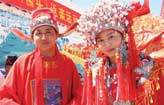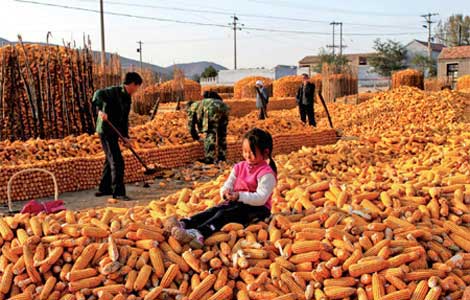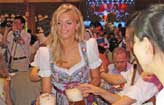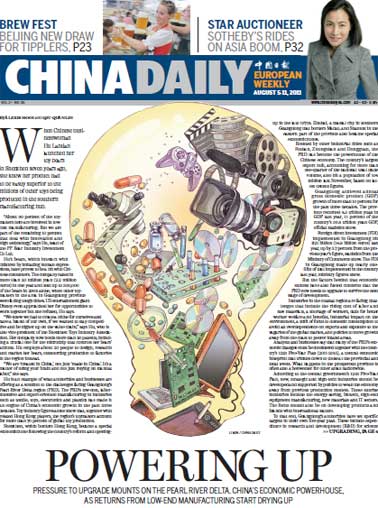Center
Saudi pulls ambassador from Syria, denounces violence
Updated: 2011-08-08 08:14
(Agencies)
JEDDAH, Saudi Arabia - Saudi Arabia's King Abdullah demanded an end to the bloodshed in Syria on Monday and recalled his country's ambassador from Damascus, in a rare case of one of the Arab world's most powerful leaders intervening against another.
It was the sharpest criticism the oil giant -- an absolute monarchy that bans political opposition -- has directed against any Arab state since a wave of protests roiled the Middle East and toppled autocrats in Tunisia and Egypt.
The Saudi statement came with all the weight of the king's personal authority, and follows similar statements since Saturday from the Arab League and the Gulf Cooperation Council (GCC).
"What is happening in Syria is not acceptable for Saudi Arabia," he said in a written statement read out on Al Arabiya satellite television.
Events in Syria had "nothing to do with religion, or values, or ethics", the king said.
A crackdown by Syria's President Bashar al-Assad against protests has become one of the most violent episodes in the wave of unrest sweeping through the Arab world this year.
On Sunday, activists said Syrian troops with tanks had launched an assault on the city of Deir al-Zor in the east of the country, killing dozens. The past week has seen scores of people killed in a siege of Hama, a city where Assad's father launched a crackdown nearly 30 years ago, killing thousands.
Assad's government says it is fighting against criminals and armed extremists who have provoked violence by attacking its troops. Activists and Western countries say Assad's forces have attacked peaceful protesters.
"Syria should think wisely before it's too late and issue and enact reforms that are not merely promises but actual reforms," the Saudi king said.
"Either it chooses wisdom on its own or it will be pulled down into the depths of turmoil and loss."
ARAB LEAGUE BREAKS SILENCE ON SYRIA
Earlier on Sunday, the Arab League, in a rare response to the escalating bloodshed in Syria, called on authorities there to stop acts of violence against civilians.
Although several Arab states have joined the West in opposing Libya's Muammar Gaddafi, most of the region's rulers have been cautious about criticising other Arab leaders during the wave of protests this year.
The other regional heavyweight, Turkey, whose foreign minister is due in Damascus on Tuesday, has been voicing its disapproval for months.
Saudi Arabia had maintained its silence regarding Syria despite deep antagonism over the contest for regional hegemony with Shi'ite Iran, one of Syria's only allies and chief patron of Hezbollah, the Shi'ite militia and political movement to which Saudi Arabia's allies have lost influence in Lebanon
Saudi columnist Hussein Shobokshi said the king's address placed the responsibility for the bloodshed squarely on Syria's ruling circle, and that recalling the Saudi ambassador could pave the way for other states to wash their hands of Assad.
"This will open up the gate for other countries to follow suit, Islamic and Arab," he said.
"I think these will ignite the spirit of protesters and give them hope that the international, Saudi and Islamic, Arab communities are firmly behind them. It will give them hope that victory is in sight."
"I do not think that the Syrian government's position is reversible. I think it is doomed and we should all now start dealing with a post-Assad reality."
Shortly after the address, Al Arabiya reported Kuwaiti parliamentarians called on members of the GCC -- a bloc of resource-rich monarchies in which Saudi influence is extensive -- to recall ambassadors from Damascus.
The channel provided no further details immediately.
King Abdullah sent Saudi troops in March to help neighbouring monarchy Bahrain put down anti-government protests, and Saudi officials have criticised the decision to put Egypt's ousted leader Hosni Mubarak on trial.
Saudi Arabia has acted as a mediator in neighbouring Yemen, and is hosting its President Ali Abdullah Saleh, who went there for medical treatment after being wounded in a bomb attack when protests against his rule turned into open conflict.
E-paper

My Chinese Valentine
Local businesses are cashing in on a traditional love story involving a cow herder and a goddess
Outdoor success
Lifting the veil
Allure of mystery
Specials

Sowing the seeds of doubt
The presence in China of multinationals such as Monsanto and Pioneer is sparking controversy

Lifting the veil
Beijing's Palace Museum, also known as the Forbidden City, is steeped in history, dreams and tears, which are perfectly reflected in design.

Beer we go
Early numbers not so robust for Beijing's first international beer festival
